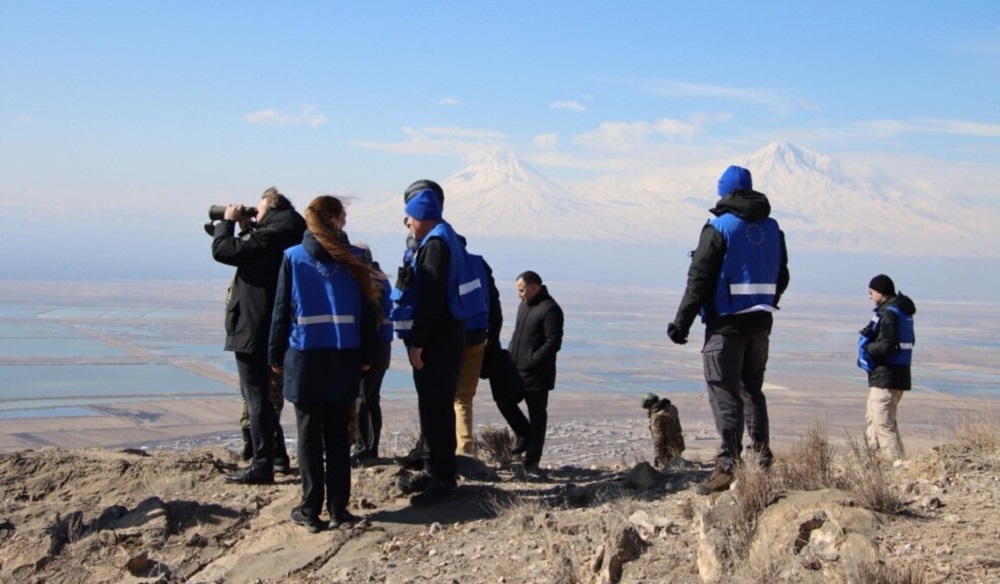"BRICS expansion: new opportunities for Azerbaijan". Opinion from Baku
BRICS and Azerbaijan
The expansion of BRICS, and Azerbaijan‘s proximity to two members of this group, as well as the expected signing of peace with Armenia, creates favorable conditions for the country’s development, analysts at Azerbaijan’s South Caucasus Research Center believe. “Baku should expand cooperation with prospective partners and consider joining BRICS.”
- Georgia: Members of a pro-Russian group accuse a civil activist of “insulting an icon”
- “Armenia’s prosperity is possible only with Europe” – Greek Foreign Minister
- Scandal over “French spies” in Azerbaijan
An expert assessment of Azerbaijan’s relations with BRICS countries by analysts of the South Caucasus Studies Center (CSSC).
“The classical classification of international organizations allows them to be divided into such different categories as political, economic and military, based on their areas of activity and goals. For example, after the collapse of the USSR, Russia, together with surrounding states, created structures like the CIS (political), EAEU (economic) and CSTO (military). But nowadays, this classification is becoming more and more conditional. In today’s world, international organizations of mixed type are already being formed, and one of them is BRICS, which does not yet have the status of an organization, but is moving in this direction.”
Expanding global platform
“While the above-mentioned organizations and those created with the direct effort of Russia are of a local-regional nature, BRICS is an emerging initiative of a global scale. Founded in 2006 by Brazil, Russia, India and China, the platform has since expanded its boundaries. In 2011, South Africa joined, and in 2024, Iran, Saudi Arabia, UAE, Egypt, and Ethiopia. At present, BRICS primarily plays the role of a deliberative platform for the rapidly growing number of countries in the global South.
Although the member countries take different positions on many issues, they share two important points. The first is the attitude toward the West in the broad sense of the word. As a rule, BRICS member countries oppose a unipolar world order centered on the West and support replacing it with a multipolar system. Many of these countries cooperate with the West, but in their relations with Washington they act from the position of an equal partner.
For this reason, some of the BRICS countries that are members of the G20 need an alternative platform to discuss certain issues. The need to join BRICS stems from this.
Another important point that unites this group of countries, and especially the new wave countries in BRICS, is that they all claim leadership in their region. Countries with growing international prestige, taking advantage of BRICS opportunities, are trying to achieve a more equitable sharing of global resources, to become one of the participants in decision-making on the future of the whole world.”
New opportunities for Azerbaijan
“Azerbaijan is now on the threshold of signing a peace treaty with Armenia. The normalization of relations between Azerbaijan and Armenia, Turkey and Armenia, as well as the process of opening regional communications, expected after the signing of the peace treaty, creates new opportunities for the future development of our country. Iran’s accession to BRICS and this union reaching Azerbaijan’s borders from both sides creates favorable conditions for official Baku. Today the share of BRICS countries in the global GDP is 36 percent. By 2040 this figure should reach 45 percent, which will allow a doubling of similar indicators of the G7 countries, the main countries with developed economies.
Azerbaijan must take maximum advantage of its proximity to a platform with such a huge economic potential. It is pertinent to recall that the western route of the North-South corridor connecting BRICS countries such as India, Iran and Russia passes through Azerbaijan. And the expansion of BRICS makes the growth of mutual trade between the countries of the group through the South Caucasus, including Azerbaijan, inevitable.
The two points that unite BRICS countries, which we mentioned above, are also relevant for Azerbaijan. Because our country also cooperates with the West, but does not recognize its dictates and advocates for equal partnership. On the other hand, Azerbaijan is the leader of the region by many parameters.
The expected peace with Armenia will be the beginning of a new era not only for our country, but also for the region as a whole. And based on the requirements of this new era, Baku should expand cooperation with prospective partners and consider the possibility of joining BRICS.”




















